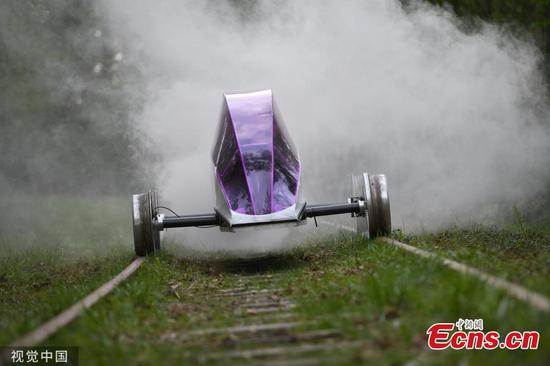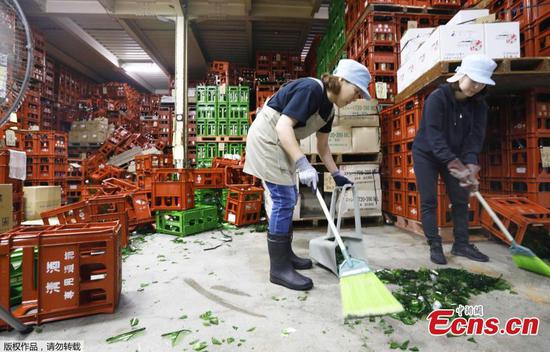In one week, Shanghai will start enforcing its first regulation on domestic waste management, joining other large Chinese cities piloting a shift to make garbage classification compulsory, instead of voluntary.
Since the beginning of this century, China has encouraged people to sort household garbage voluntarily. While more people have realized the importance of garbage classification, the effect was not so great in terms of collection.
Shanghai's regulation requires people to sort trash into four categories - dry garbage, wet garbage (kitchen waste), recyclables and hazardous waste. Individuals who fail to do so may be fined up to 200 yuan ($29.11), while companies and institutions face fines of up to 50,000 yuan.
Liu Xinyu, a researcher with the Shanghai Academy of Social Sciences, said that the significance of this legislation is to transform the past voluntary action into the compulsory action of every citizen.
Beijing, Guangzhou, Shenzhen and Hangzhou have enacted or revised regulations on garbage classification to enhance the guidance of people's actions, strengthen classification in the whole process and supervise law enforcement.
At a meeting of the Beijing Municipal People's Congress at the end of May, representatives have proposed revisions to the city's regulation on domestic waste, adding more punishments for offenses.
Wu Xiangyang, a researcher with the Beijing Academy of Social Sciences, said that garbage classification work was not so ideal in the past because of the lack of forceful measures, and the revision will place restrictions on people's behavior.
Guangzhou put into practice its regulation on garbage classification starting July 1 last year. In August, one resident became the first to be fined 200 yuan for violating the regulation.
While large cities piloted the forceful measures, the central authority has recently issued a notice to ask all cities at the prefecture level and above to start work on the promotion of household garbage classification this year.
The 46 cities currently involved in a household garbage classification pilot program should set up a system to classify and dispose of their household garbage by 2020, the Ministry of Housing and Urban-Rural Development said.
By 2022, every city at the prefecture level and above should have at least one district where all household garbage is classified, and by 2025 they should have their own household garbage sorting and disposal systems.


















































